30 Jan 2024
For international business students who plan to work in a Chinese context, becoming comfortable using Mandarin in business scenarios is critical. In addition, it’s also important they have firsthand knowledge of China’s business environment and market features.
Xi’an Jiaotong-Liverpool University’s Business Chinese module, part of the International Business with a Language undergraduate programme, tackles both needs. Students in the module visit and interview local businesses, learning about Chinese business practices as they interact with the owners.
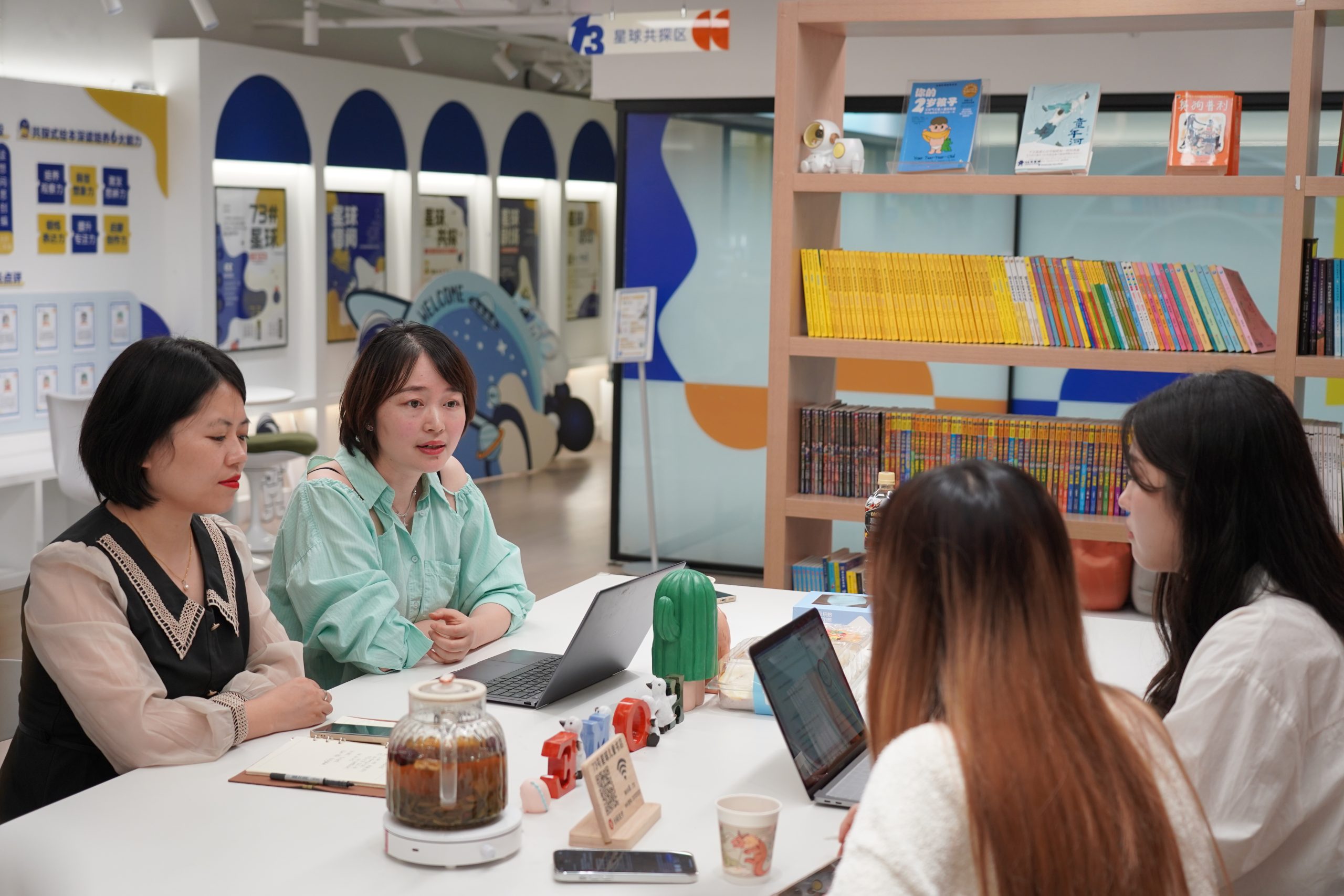
Students interview representatives from the 73rd Planet Children's Bookstore
Local learning
This past semester, students visited Xincheng Neighbourhood Centre in the Suzhou Industrial Park area. Built in 1998, it is the first “neighbourhood centre” in Suzhou – a community business and service hub that integrates commerce, culture, sports, healthcare, and education.
“I saw that the businesses in the fresh food market all use a smart platform to help them analyse their operational data,” says Sieum Lee, a Year Four student from South Korea. “I also noticed that the platform offered e-commerce services such as logistics and payment solutions, which are convenient for both customers and merchants.”

Students learn about the neighbourhood centre's smart platform
Besides learning about the neighbourhood centre model, the students interviewed representatives from three diverse enterprises: a children’s bookstore, a Western-style craft beer restaurant, and a sports venue. From the merchants, they gathered information about the businesses’ strategies, marketing models, and operational challenges.
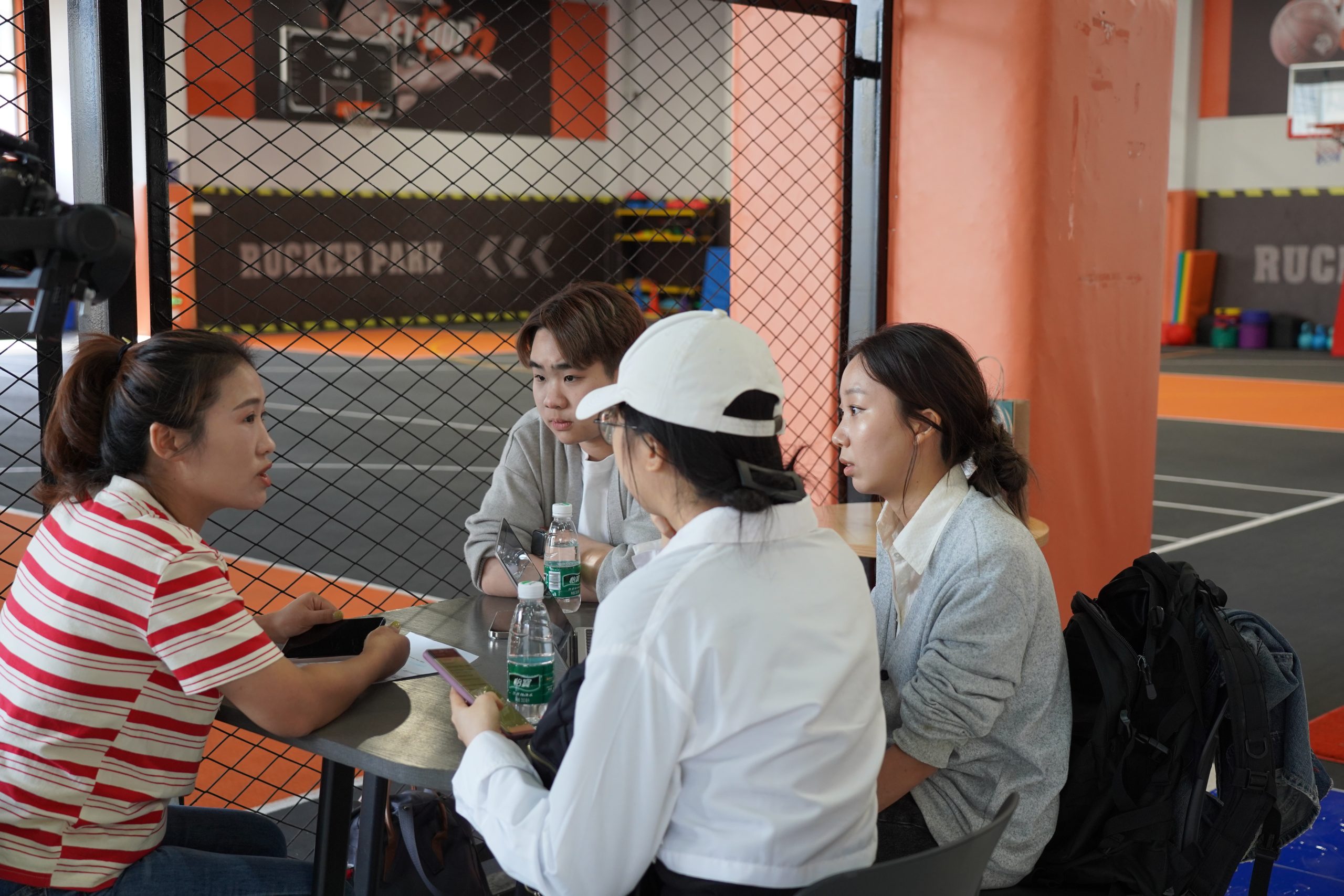
Students learn about Rucker Park Sports Venue’s business practices from its representative
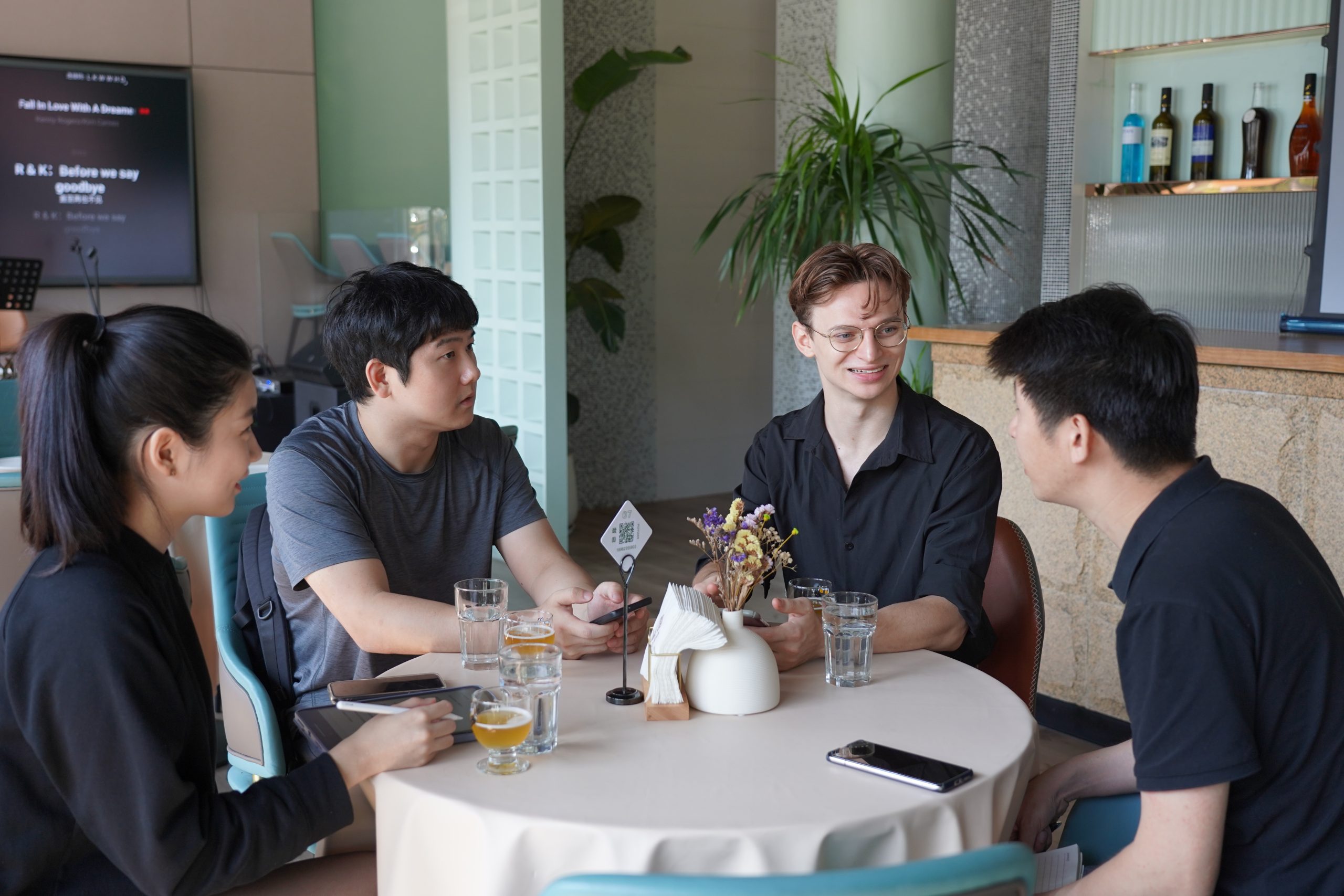
Students interview the representative from Poyuan Beer Restaurant
After the visit, students formulated marketing proposals, looking at creative ways to meet the businesses’ promotion needs. For example, the proposal for the children’s bookstore was to host a stand-up comedy event along with talks from book authors on how to help kids build good reading habits.
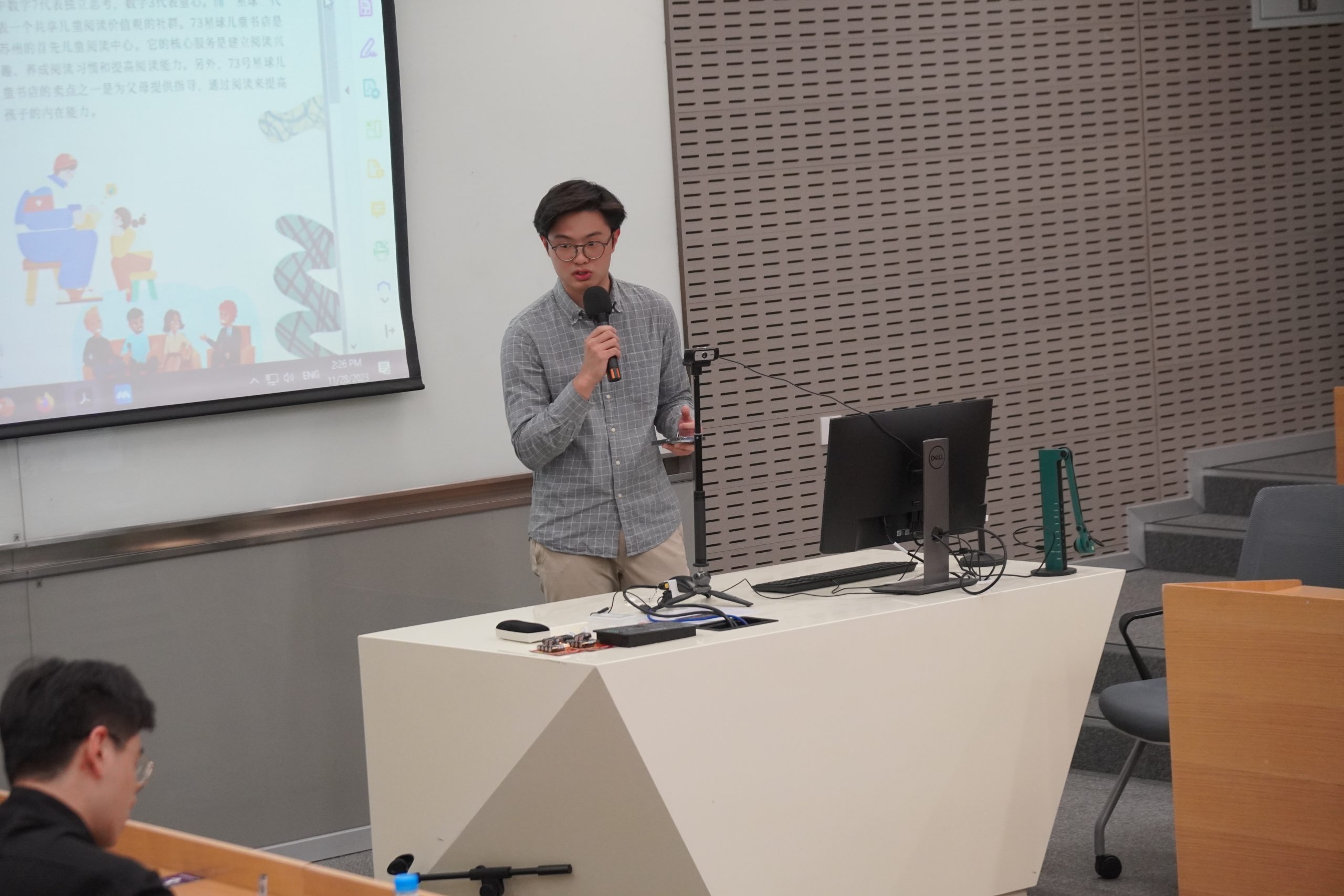
Student showcases the marketing plan his team designed to business representatives
Representatives from the businesses were then invited to listen to and comment on the students’ ideas. The proposals were imaginative and fresh, says Kaili Zhang, who represents Rucker Park Sports Venue.
“The students’ marketing plans are all quite insightful, particularly the part related to social media marketing and event planning that compensate for the shortcomings in our traditional sales model,” Zhang says. “They raised many innovative marketing initiatives from the young generations’ perspective, which are highly worthy of our consideration and adoption.”
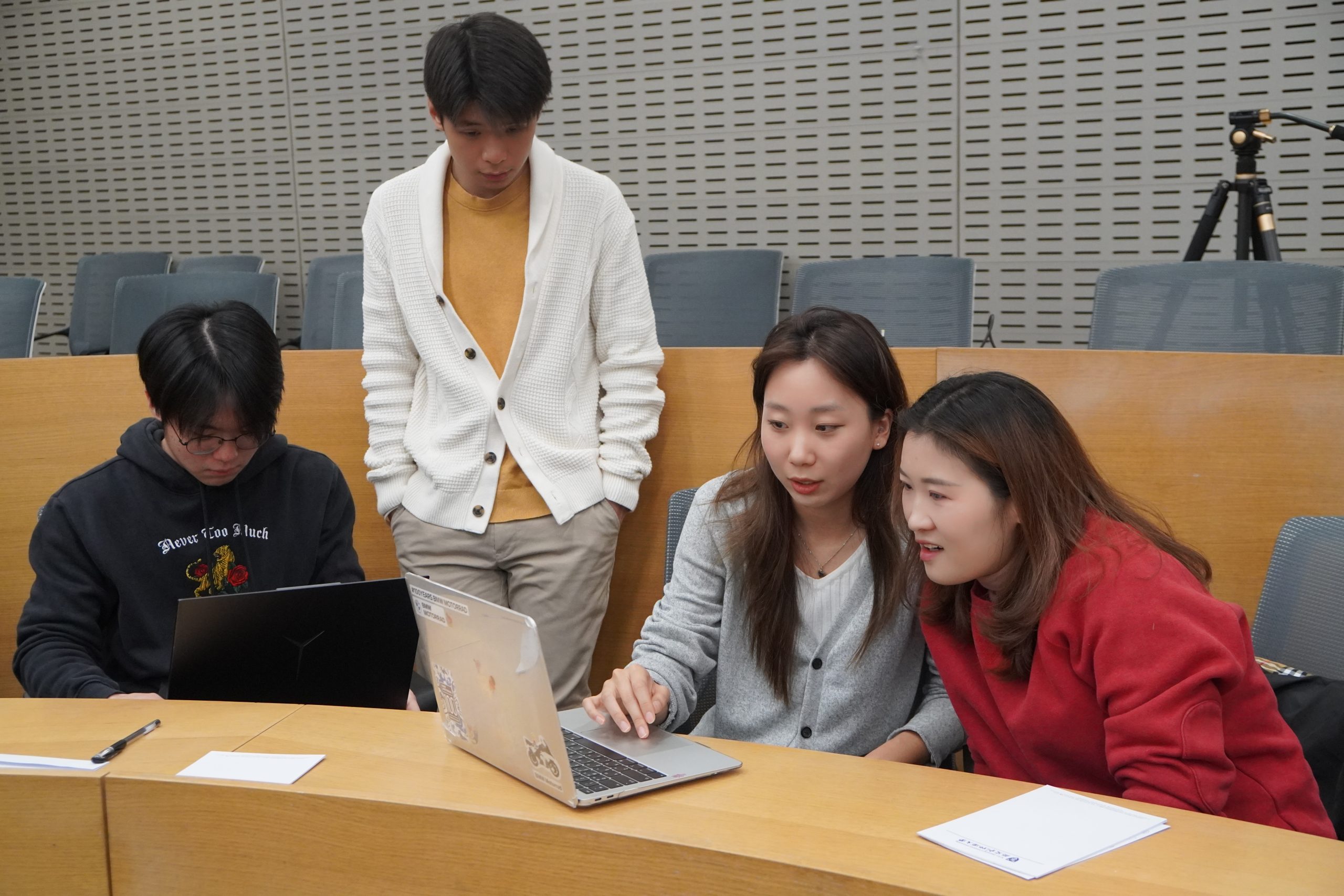
Kaili Zhang (right) gives feedback to students
Fast track to success
Ting Wen, the module leader of the Business Chinese course, says that words and phrases learned in class before the visits helped prepare the students.
“I observed that the majority of students could proficiently express their opinions in Chinese by incorporating the expression of technical terms they learned in class,” Wen says. “Furthermore, students were also consciously applying the communication skills they learned.”
She adds that the students not only improved their Chinese language skills but also gained valuable insights into the intricacies of Chinese community businesses.
“For international students planning to work and live in China, opportunities to communicate with local businesses can significantly enhance their ability to adapt to the workplace swiftly and effectively,” Wen says.
Dr Yameng Zhang, the Programme Director of BA International Business with a Language at XJTLU’s International Business School Suzhou, also emphasises the value of firsthand experience with local businesses.
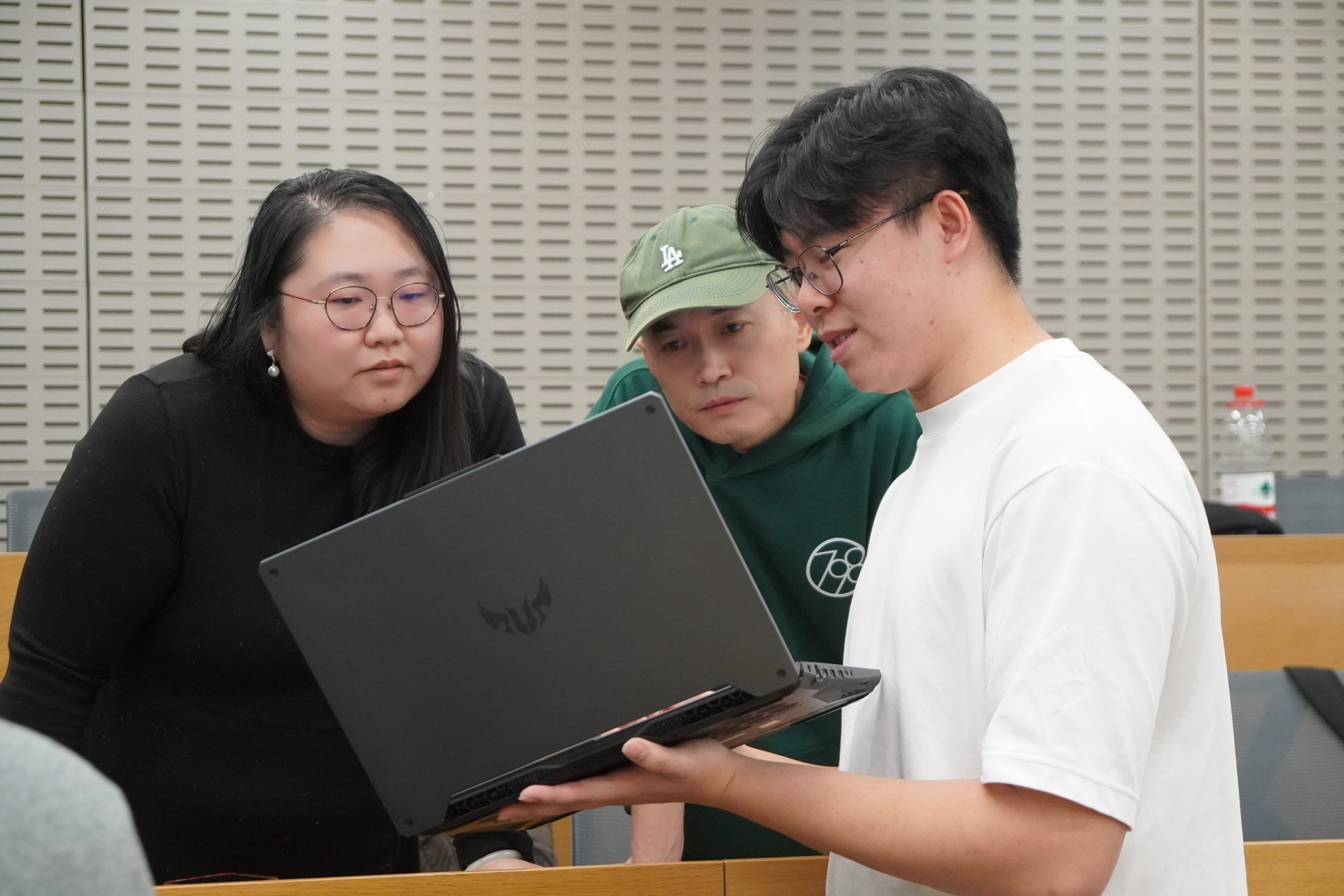
Dr Yameng Zhang (left)
“Proficiency in Chinese is a crucial hard skill for students in the BA International Business with a Language programme, but what matters is not just the language,” Dr Zhang says.
“Acquisition of soft skills such as a profound grasp of the market and the relevant regulations and effective cross-cultural communication also plays a vital role in enhancing students’ competitiveness in the job market.”
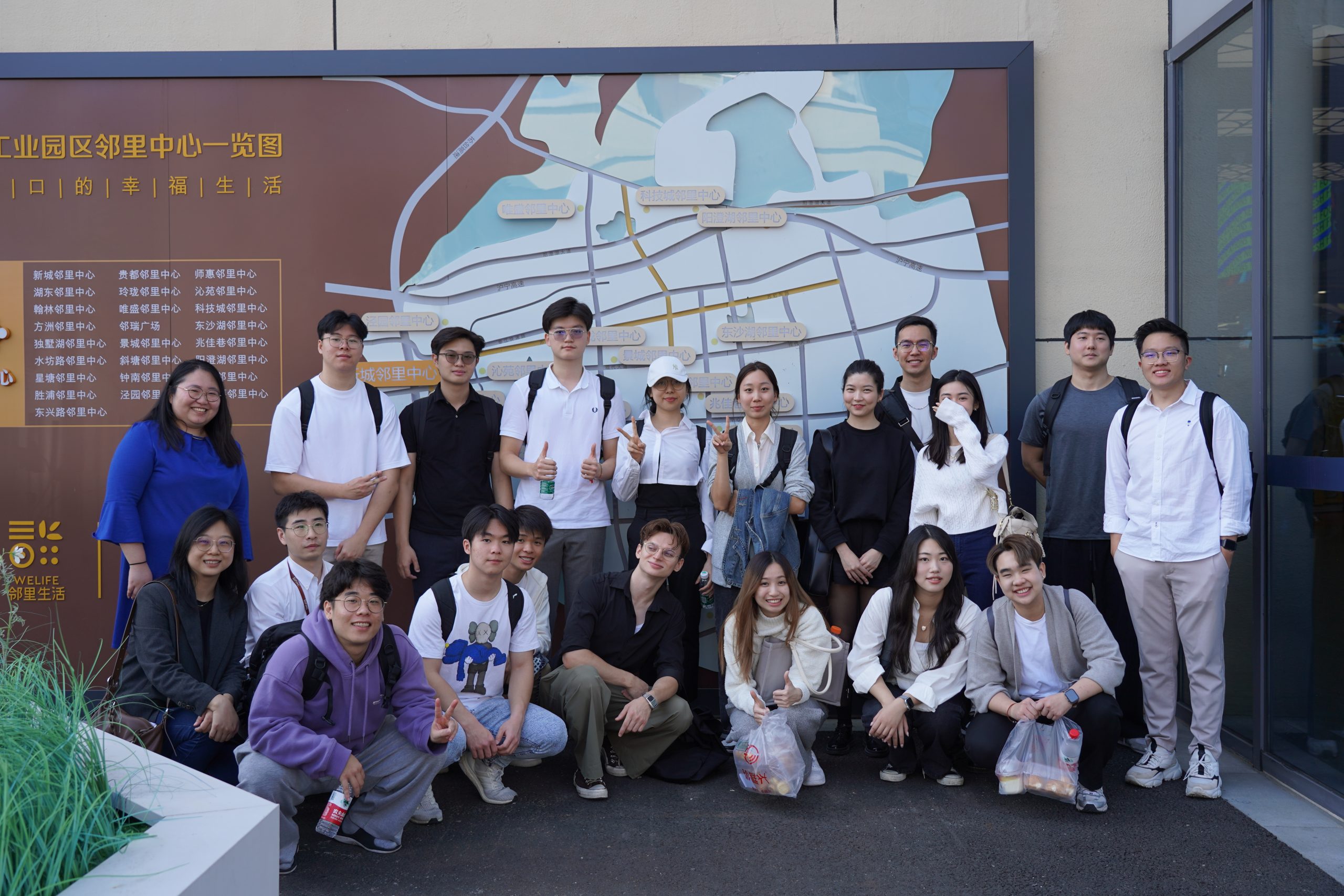
Students at Xincheng Neighbourhood Centre
By Xinyi Liu
Translated by Xueqi Wang
Edited by Tamara Kaup and Patricia Pieterse
Photos by Xinyi Liu
30 Jan 2024








